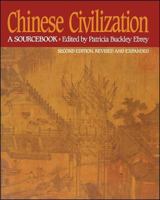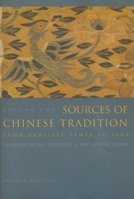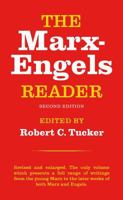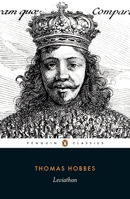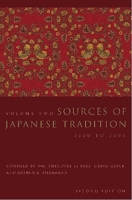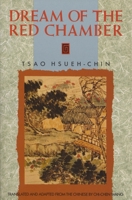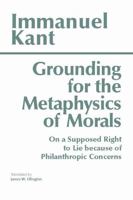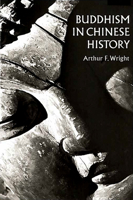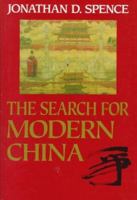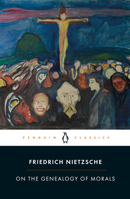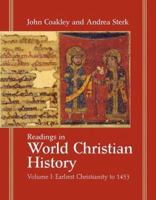Sources of Chinese Tradition, Vol 1: From Earliest Times to 1600
Select Format
Select Condition 
Book Overview
A collection of seminal primary readings on the social, intellectual, and religious traditions of China, Sources of Chinese Tradition, Volume 1 has been widely used and praised for almost forty years as an authoritative resource for scholars and students and as a thorough and engaging introduction for general readers. Here at last is a completely revised and expanded edition of this classic sourcebook, compiled by noted China scholars Wm. Theodore de Bary and Irene Bloom. Updated to reflect recent scholarly developments, with extensive material on popular thought and religion, social roles, and women's education, this edition features new translations of more than half the works from the first edition, as well as many new selections.
Arranged chronologically, this anthology is divided into four parts, beginning at the dawn of literate Chinese civilization with the Oracle-Bone inscriptions of the late Shang dynasty (1571-1045 B.C.E.) and continuing through the end of the Ming dynasty (C.E. 1644). Each chapter has an introduction that provides useful historical context and offers interpretive strategies for understanding the readings. The first part, The Chinese Tradition in Antiquity, considers the early development of Chinese civilization and includes selections from Confucius's Analects, the texts of Mencius and Laozi, as well as other key texts from the Confucian, Daoist, and Legalist schools. Part 2, The Making of a Classical Culture, focuses on Han China with readings from the Classic of Changes (I Jing), the Classic of Filiality, major Han syntheses, and the great historians of the Han dynasty. The development of Buddhism, from the earliest translations from Sanskrit to the central texts of the Chan school (which became Zen in Japan), is the subject of the third section of the book. Titled Later Daoism and Mahayana Buddhism in China, this part also covers the teachings of Wang Bi, Daoist religion, and texts of the major schools of Buddhist doctrine and practice. The final part, The Confucian Revival and Neo-Confucianism, details the revival of Confucian thought in the Tang, Song, and Ming periods, with historical documents that link philosophical thought to political, social, and educational developments in late imperial China. With annotations, a detailed chronology, glossary, and a new introduction by the editors, Sources of Chinese Tradition will continue to be a standard resource, guidebook, and introduction to Chinese civilization well into the twenty-first century.You Might Also Enjoy
Customer Reviews
Rated 4 starsChinese Tradition
Bought this book for a course. Comprehensive - very detailed accounts of history and philosophy. The professor doesn't really "teach," so this book has been an invaluable resource.
0Report
Rated 5 starsSources of Chines Tradition, Vol 2
This book is excellent for anyone wanting to read primary source information. It is a great help for any college student or proffessor interested in the Chinese Culture. I highly recommend this to any one who is interested in Chinese history.
0Report
Rated 5 starsExcellent resource!
This book gets the majority of its bulk from direct translations of actual Chinese texts, and as such it is an indespensible tool for any student interested in Chinese religions and philosohpies. There is very little input on the part of the editors and I, personally, was very thankful this. It can be dreadfully difficult trying to find sources that aren't mired in thousands of pages of theory and speculation, and sometimes...
0Report
Rated 5 starsAbsolutely essential
I'll make this short...For anyone interested in Chinese history, literature, or culture, this volume is an absolutely essential collection of primary sources, and includes prefaces and explanations by China scholars. There is no one better than de Bary, and this new edition includes everything from the 1960 edition up through the Jiang Zemin era.
0Report
Rated 5 starsall the classics and essentials
I've read a little of this and that about Chinese history and religion, and I needed a book to fill in the basics and the details. This was perfect.First, the selections included excerpts of almost everything I'd ever heard of: Shang Oracle Bones, the Analects of Confucius and the Confucian classics including the I Ching; Mozi; the Tao Te Ching; Zhuangzi (who famously dreamed that he was a butterfly); Mencius; Xunzi; the Zuozhuan;...
0Report











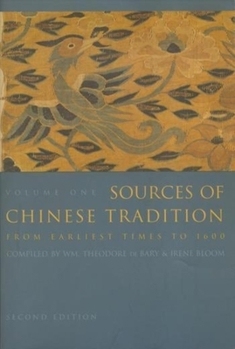

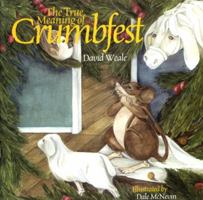















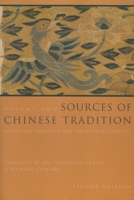
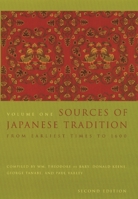
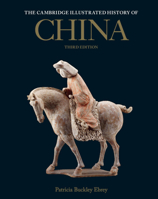
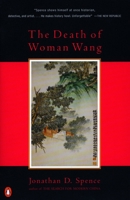
![莊子 [Zhuāngzǐ]](https://i.thriftbooks.com/api/imagehandler/s/AFE7C12FDE2D0048C3FEC7A7C5ED097EE68B534B.jpeg)
